JournalismPakistan.com | Published June 18, 2012 | Saadia Khalid
Join our WhatsApp channel
LEEDS: Media houses are agenda-driven and journalists too - in some cases - act as mouthpieces of government and sometimes of security agencies. We have been hearing this for decades.
Initially the media houses were associated with mainly two political parties. Then the role of the security agencies became evident. This association grew ‘stronger’ with the arrival of electronic media.
Mubashar Lucqman and Meher Bukhari, the Dunya TV anchors got caught after their off air footage of an interview with property tycoon Malik Riaz went viral. But this does not mean only these two from the entire media industry were doing planted programs or only Dunya TV was driven by some agenda. Obviously there would be many more.
Some would take this incident as a blessing in disguise for making amends while some would try to be more ‘careful’ during off air discussions. Whatever the situation may lead up to, the incident has shattered the trust of people in television anchors and media houses.
However, it is not just Pakistan where such things take place. These happen all over the world. Obviously this is not a justification for what wrong the Dunya anchors did.
Take for example the association of press with political parties in the United Kingdom which claims to have a free and fair media. And this has been revealed during the trial of UK Premier David Cameron who is facing the Leveson Inquiry on charges of being biased in favor of a bid by News International's parent company News Corp to take over BskyB.
It has been alleged that Conservatives gave undue favors to News International as a bargain for gaining support in elections.
The trial has brought to the fore various hidden facts about the relationship between the press and politicians as Cameron himself said the inquiry had created a cathartic moment for politicians, journalists and police to reset this relationship.
The prime minister's witness statement reveals he had 1,404 meetings with media figures - 26 a month on average - while in opposition between 2005 and 2010. Once in government, that fell to an average of about 13 a month. According to Cameron, the meetings he held with newspaper editors were an effort to promote the Conservative party and to gain their support.
It was revealed in the court that in 2008 he made a trip to the Greek island of Santorini for a dinner with News International boss Rupert Murdoch in order to build relationship with him. The prime minister admitted he tried to win support from Murdoch's newspapers during at least 10 meetings in the run-up to the election.
Meanwhile a text message sent by Mrs Brooks, the former boss of Rupert Murdoch’s newspaper group, to Cameron in October 2009 was read out to the inquiry in which she said she was "rooting for him", both as "a personal friend" and because "professionally we're in this together". Cameron, however, admitted in the court the relationship between press and politicians has gone wrong and there is a need to get it on a better footing.
The same perhaps needs to be done in Pakistan. The Dunya TV incident is a wakeup call for the growing media industry.
This also shows the subtleness with which such episodes are handled in the West and the crudeness with which journalists and politicians openly accuse each other in Pakistan. In the end the only defense available for everybody involved is: “It’s a conspiracy against me”.
(Saadia Khalid works for The News, Islamabad. She is based in England)
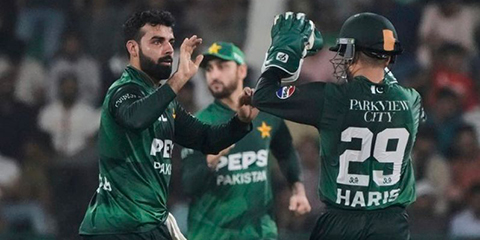
June 11, 2025: Pakistan celebrated a narrow win over Bangladesh, but beneath the jubilation lies a deeper crisis—from sidelined veterans to a collapsing domestic structure—signaling an urgent need for cricket reform.
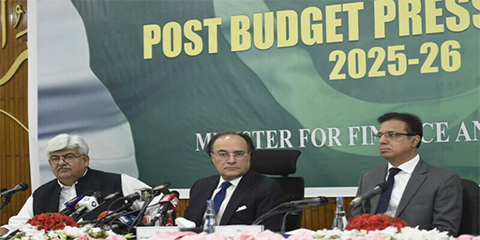
June 11, 2025: Journalists walked out of the post-budget press conference in Islamabad to protest the absence of a technical briefing and the government's dismissive behavior, calling it unacceptable and intolerable.
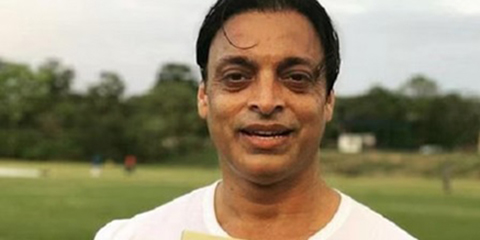
May 31, 2025: Dr. Nauman Niaz has issued a defamation notice to Shoaib Akhtar over derogatory remarks made during a recent broadcast, reigniting a longstanding media feud between the two prominent figures in Pakistan.

May 30, 2025: The Human Rights Commission of Pakistan has demanded the full repeal of PECA, citing its vague language, coercive powers, and threats to free speech and digital rights in Pakistan.
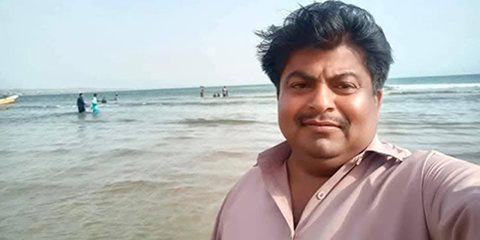
May 30, 2025: The Pakistan Federal Union of Journalists (PFUJ) has condemned the murder of journalist Syed Mohammed Shah in Jacobabad, calling for urgent justice and improved safety for media professionals in Sindh.

May 26, 2025: In Rawalpindi, police allegedly side with Jang Group to block 66 reinstated employees from resuming work despite court orders, drawing sharp criticism from unions and press freedom advocates.

May 25, 2025: PFUJ condemns the Jang Group's decision to dismiss over 80 employees in Rawalpindi, calling it an 'economic massacre.' The union warns of nationwide protests if workers are not reinstated.
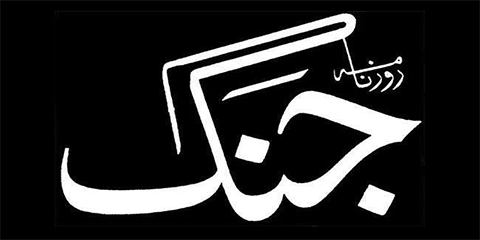
May 25, 2025: Daily Jang Rawalpindi has terminated over 80 employees, including female staff, despite multiple court rulings in their favor—raising concerns over labor rights violations and misuse of authority in Pakistani media.
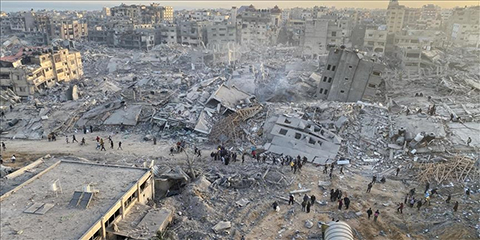
May 19, 2025 PJS reports 219 Palestinian journalists killed in Israeli attacks since October 7, with 30 women among the victims. Over 430 were injured and 685 family members were killed. Read more on the systematic targeting of media in Gaza.

May 15, 2025 Discover the legacy of Samiullah Khan, Pakistan’s legendary "Flying Horse," whose breathtaking speed and artistry redefined hockey. From Olympic glory to World Cup triumphs, his story is one of myth, movement, and magic.
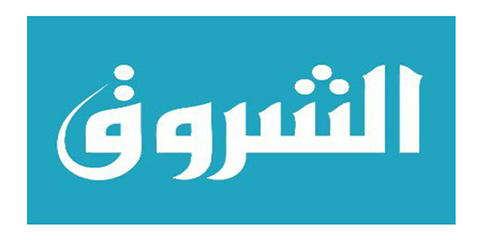
May 04, 2025 Algerian authorities suspend Echorouk News TV for 10 days after it used a racist slur against African migrants. ANIRA demands an apology, calling it a violation of human dignity.

May 04, 2025 NCHR and MMfD launch a journalism fellowship to train reporters on digital rights & gender inclusion in Pakistan. Supported by UNESCO, this initiative aims to bridge the gender digital divide. Apply by May 15, 2025!
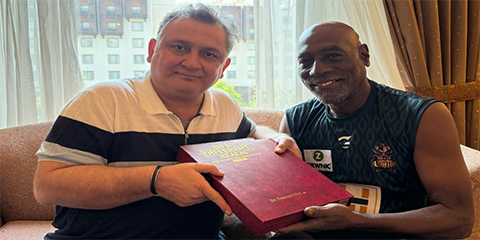
April 23, 2025 Discover Dr. Nauman Niaz’s In A Different Realm: Story of Quadruple & Triple Centuries 1876–2025, a profound exploration of cricket's most monumental innings, blending historical analysis with poetic narrative.